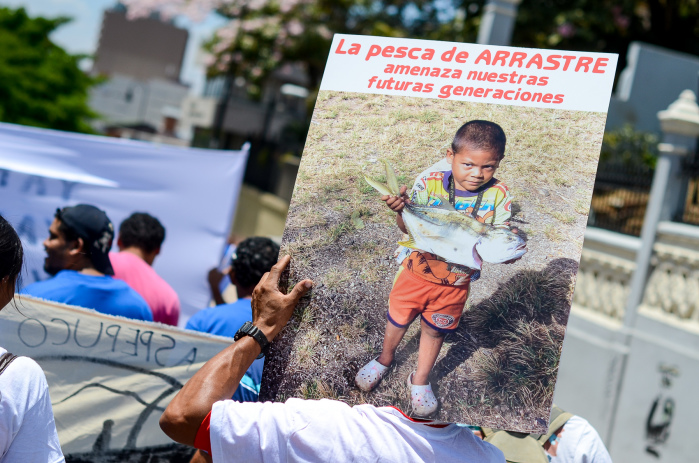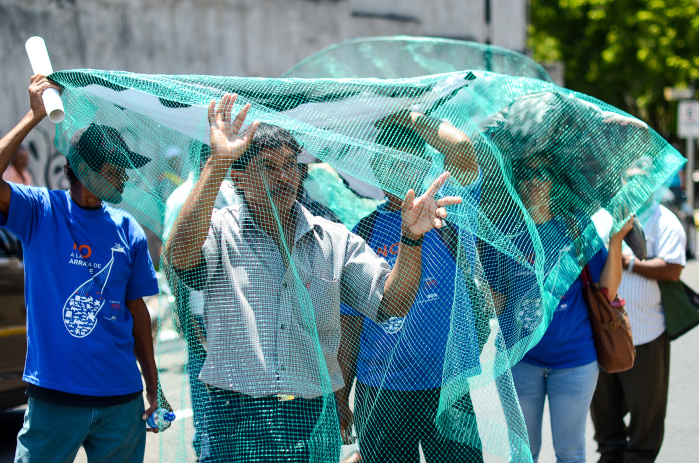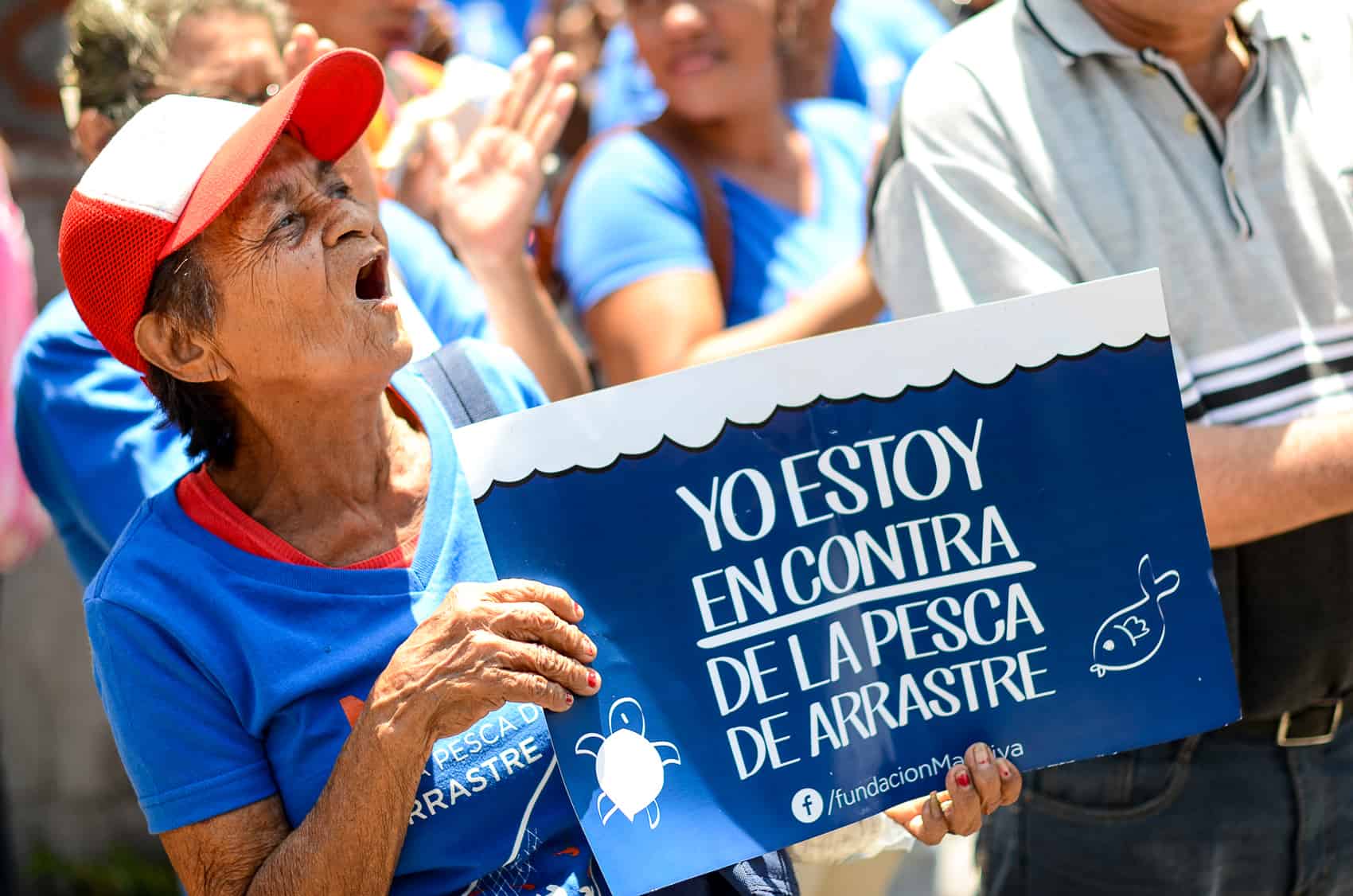More than 600 fishermen and environmentalists united Thursday morning to protest a bill that would reinstate shrimp trawling in Costa Rican waters. Shouting the rhyme, “Pesca arrastre es un desastre,” the group of several hundred wound their way around the San José city block where the Legislative Assembly is located.
“This is to protest 50 years of industrial boats killing everything in the ocean and leaving us artisanal fishermen with nothing,” Francisco Hernández, a fisherman from Puntarenas, told The Tico Times.
The protest is the latest in an ongoing battle over the fishing practice’s legality in Costa Rican waters, which has been contested since the Constitutional Chamber of the Supreme Court (Sala IV) declared trawling unconstitutional last August. The court’s ruling banned the Costa Rican Fisheries Institute (Incopesca) from renewing or issuing new shrimp trawling licenses, but allowed boats with active licenses to continue operating until their licenses expire.

But celebrations from environmentalists and artisan fishermen who opposed the practice were short-lived. The same day, Rodolfo Sotomayor, a lawmaker from the Pacific coastal province of Puntarenas, presented a bill to make trawling legal again. The bill hinges on the wording of the Sala IV ruling that said the practice was illegal because it was unsustainable. The bill’s supporters claim that through regulation they can make trawling sustainable.
“We can regulate it without getting rid of it,” Luis Dobles, the executive president of Incopesca and a supporter of the bill, told The Tico Times. “The problem right now is that there isn’t much regulation, but we can fix that.”
The draft of the bill was approved by a special committee in the Legislative Assembly three weeks ago and could go to the floor for debate any day.
If passed, Incopesca would be able to renew 39 trawling licenses that are currently active when they expire, but they could not issue new licenses. The five boat captains whose licenses have expired following the ban would also be ineligible for renewal. According to the Spanish-language daily La Nación, approximately 60 people lost jobs after the first licenses expired, causing groups of shrimp trawlers to protest in Puntarenas last month.
Román Chavarría, a representative for the shrimp trawlers, told La Nación in February:
“There is an effect that the justices who approved [the ban] forgot, and that is the damage they are doing to business owners and workers in the [shrimping] sector.”
Sotomayor and his supporters say the bill would save jobs that have not already been lost. Opponents claim continuing trawling will hurt the fishing industry more than it will help it, and that preserving jobs is just an excuse for Incopesca – a long-time supporter of industrial fishing – to maintain the practice.
“This bill is just a trick designed to create false expectations and take advantage of the needs of shrimp trawling families,” said lawmaker Jorge Gamboa, the only legislator who opposed the bill in commission. “The bill does not resolve a single problem, it just authorizes shrimp trawling in order to authorize shrimp trawling.”

Environmental groups also say the new bill does not meet the scientific requirements to show that it would make trawling sustainable. The only new restrictions on trawling would be the required use of fish excluder devices to limit bycatch. According to MarViva, the ocean conservation group leading the charge against trawling in the country, these devices have never been studied in Costa Rica.
The lack of scientific evidence has led many lawmakers to oppose the bill, including former presidential candidate José María Villalta of the Broad Front Party, who attended Thursday’s protest.
“A small group is benefiting from these licenses. They are taking everything from the ocean and not leaving room for others,” Villalta said in a speech at the protest. “They are killing our countries riches and we are not going to allow our children and grandchildren to pay the price for this.”
Even if the bill is shot down, it will still be another five years before the last active license expires. According to environmental groups, no real fishery recuperation can be done until that time.
“We as environmentalists have made alliances with artisanal fishermen who want to fish sustainably and to protect threatened species,” said Randall Arauz, president of the conservation group Pretoma, “but we can’t develop those types of programs now because a shrimping boat will come along and destroy something fishermen have worked on for months all in one day.”






